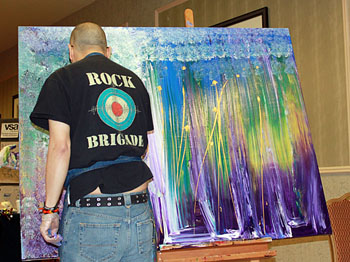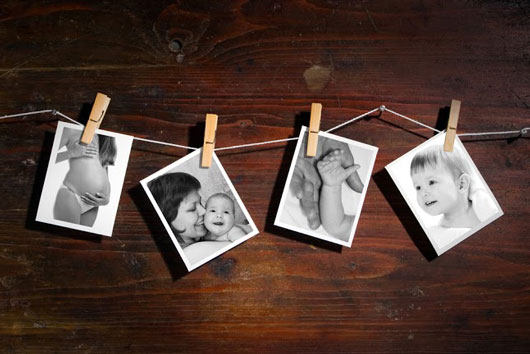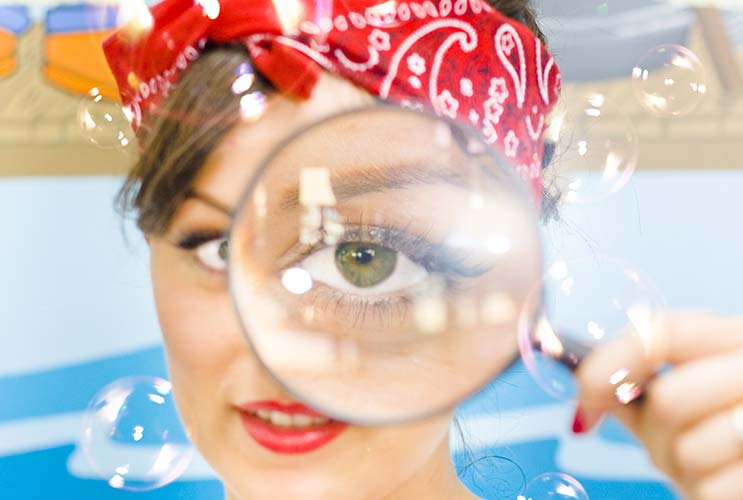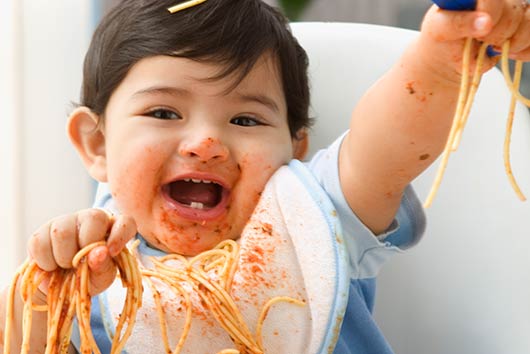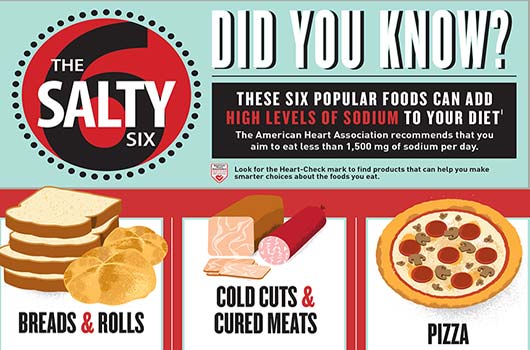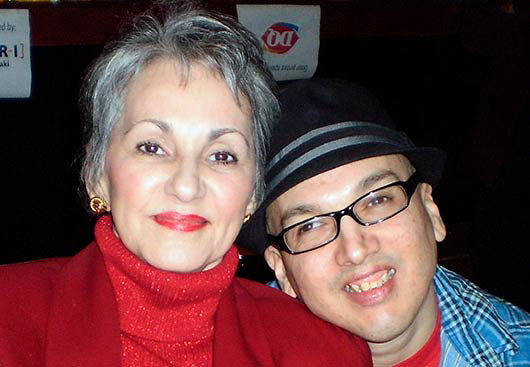
All mothers worry about their children’s welfare. But for mothers of children with special needs, the anxiety of finding a good caretaker can be crushing. They have a particular burden of leaving their children in good hands to live safe and loving lives.
Diana Rivera is now facing that challenge. She has been the primary caretaker for her 40-year-old severely autistic son Anthony for most of his life. When she was working full time as an attorney, her father, stepped in to watch Anthony.
But Diana’s father died a few years ago and so today, she is left alone to care for Anthony. Diana and her son’s biological father divorced when Anthony was a baby.
Read Related: My Perfect Son Has Autism
Diana has been diagnosed with mitral valve stenosis, which causes the left heart ventricle valve not to open properly. If she does not have an operation, the disease could result in a heart attack or worse. But an operation will leave her hospitalized and in need of care for several weeks. In preparation, Diana has searched for a temporary caregiver to look after Anthony in her absence. Anthony, who is extremely close to his mother, has so far rejected all of the full-time caretakers who have walked through the door of their McAllen, Texas, home.
“It scares me to death, not for me, but for Anthony, what would happen to him if I couldn’t take care of him?” Diana said recently.
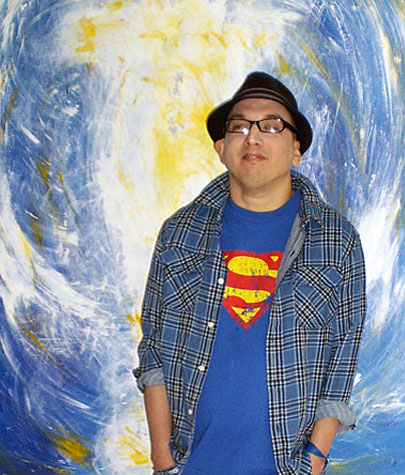 According to a recent survey conducted by The Arc, the nation’s leading advocacy and service organization for people with intellectual and developmental disabilities, 46 percent of parents/caregivers say they have more care giving responsibilities than they can handle. More than 80 percent say that they are suffering from physical fatigue, emotional stress and emotional upset or guilt some or most of the time.
According to a recent survey conducted by The Arc, the nation’s leading advocacy and service organization for people with intellectual and developmental disabilities, 46 percent of parents/caregivers say they have more care giving responsibilities than they can handle. More than 80 percent say that they are suffering from physical fatigue, emotional stress and emotional upset or guilt some or most of the time.
“It is so difficult to find the perfect match for your child that you know you can trust,” said Pat Wyman, an expert on autism who has written several books and is the founder of the website, HowToLearn.com. “You have to go through hundreds of people to even find one that your child can respond to and that you can trust as well. For any parent that has to leave their child with a caretaker there is always an element of fear. That fear goes up exponentially if your child has special needs.”
GREATER CHALLENGE FOR LATINOS
For Latinos, it may be more challenging to find quality care.
“It is difficult to find trained support staff for people with disabilities. For many the pay is low and there is little ongoing training,” said Lisa Goring, Vice President, Family Services for the advocacy group Autism Speaks. “There are some resources for Hispanics that are disabled, but we know that more is needed.”
Read Related: A Mom’s Journey With Autism
THE AUTISM DIAGNOSIS
Anthony was diagnosed with autism when he was a teenager. But Diana knew from the very beginning that her child was different. He was born with the umbilical cord wrapped around his neck, his little body a deep blue from the lack of oxygen. He missed all of the childhood benchmarks of normal development—as a baby he didn’t like being touched and screamed out when held. He did not walk until three, did not talk until he was six and he would hide under tables, chairs and beds with his hands over his ears screaming that bees were attacking him. Doctors thought he was schizophrenic.
Diana blamed herself. Since she was raised in a family of migrant farm workers, she figured the exposure to pesticides and other agricultural chemicals might have caused the problem. She wracked her brain trying to figure out what had caused so much damage to her little boy.
“Was it the vaccinations, the high fevers, the cord around his neck, what did I eat?” she wondered. Eventually, Diana, who is deeply spiritual, came to accept that “things just happen and sometimes you just have to work with what you’ve got.”
A DESIRE FOR NORMALCY
In his four decades, Anthony already has survived a series of life-threatening illnesses. He has shown determination to live his life to the fullest—which can be good and bad.
“Anthony is like Rainman,” said Jesse Martinez, Diana’s ex-husband and Anthony’s stepfather. “He knows he is sick, but he also knows that he is missing out on a lot of things. He wants to feel normal. He wants to participate in life. The pressure of dealing with someone like that 24/7 is awesomely terrifying.”
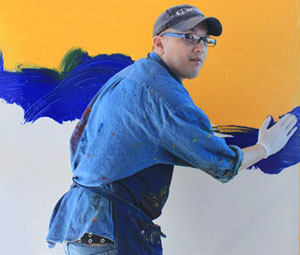
Anthony Rivera at work on a painting.
Whether it was playing football in junior high school or graduating with the entire class in high school or now painting enormous and colorful canvases, Anthony has always shown a desire to experience life as if he did not have disabilities.
Unfortunately, this can sometimes be dangerous. Plagued with severe food allergies, Anthony’s meals must be monitored closely. He craves freedom and longs to live on his own, drive a car and hang out with friends at the mall.
SHARING LIFE VIA SOCIAL MEDIA
The family’s dilemma has been playing out on social media, where Diana and Anthony have found an extended family of friends and supporters. More than 9,000 fans keep up with both Diana’s and Anthony’s thoughts and activities via Facebook. The mother and son posts are heartwarming, genuinely depicting their faith, challenges, sense of humor and above all, love and concern for one another.
Diana’s posts typically start out with “Good morning (or good evening), angels…” and a thank you to God for another glorious day. She shares mom and son outings or the fact that “Anthony is grounded again for drinking a soda someone had left behind. I feel terrible, I am not sure that punishing him is doing any good…what do ya’ll think. I works for a little while until he forgets I guess…then he gives me the Lady Gaga line “I was born this way.” I know it and it breaks my heart, I don’t know what else to do, I can’t keep him home forever, I pray for a solution Lord, in Jesus name. Good night angels, have a blessed night♥”
Anthony shares posts daily. He expresses concern for his mom: “my momma is sik ples pray for her her bons hurt i let her rest” The messages, rambling but lovable, always end with the words, ‘I love you, by [sic].’”
But his posting on January 24 was worrisome. Anthony asked his friends to pray for his mother. He had heard her crying in her room at night. It worried him so much that he threatened to kill himself if she died.
“I dont hav anyone to tak care of me,” he wrote. “I hear her cry last nit i,m sad i dont lik to hear her cry i pray to jesus now i love you by.”[sic]
Diana discovered his post and let everybody know that she was fine. The outpouring of support and concern was moving to her. And she is determined to find someone to care for Anthony that he will approve of. It is not, after all, the first challenge they have faced.
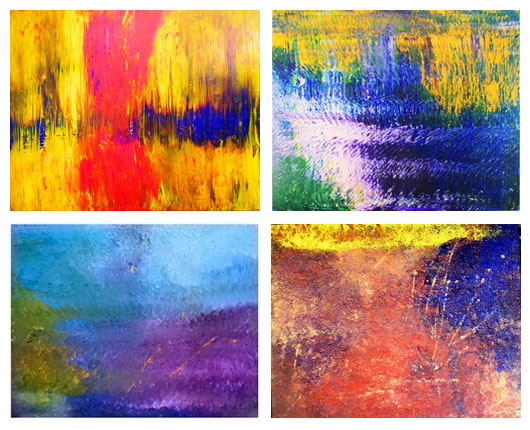
A group of paintings by Anthony Rivera.
PRAYING FOR A CAREGIVER
She has survived domestic violence (in her first marriage) and a major car accident that almost left her crippled. She has had several health scares, including surviving a stroke and cancer, and is keenly aware of the years passing. Her goal now is to build a subdivision of group homes for children with disabilities. She hopes this could be the first step in building a semi-independent living situation for Anthony and others like him.
Read Related: Explaining Autism to Abuela
“Diana is a very unique person. She is just so positive and with her faith, her strength and her ability to do what she says she is going to do, it becomes a self-fulfilling prophecy,” said Martinez, who noted that he might have to care for Anthony if Diana cannot find a caretaker soon. (If he does, it would require that he move, since he lives about 5 hours away.) “If she says she is going to do something, it will be done. People will help her.”
Diana says she is sure someone will turn up soon to care for Anthony. Still, for the past few months she has had a recurring nightmare—she is lost in a strange place and she suddenly realizes that no one has reported that she has been missing for a week.
Regardless of her fear, she says she cannot lose faith.
“I am confident that God will send me the right person,” she said. “I know it will happen. I just wish He would hurry up.”
